Par Hans Köchler, professeur de philosophie politique*
Ex: http://www.horizons-et-debats.ch
«En ce qui concerne l’actuelle problématique des réfugiés ou des flux migratoires, je ne me souviens d’aucune situation dans laquelle la presse et l’opinion publique aient été aussi diamétralement opposées. Dans les divergences entre l’opinion publique et les medias, je vois un problème tout à fait fondamental pour notre communauté démocratique.»
Je diviserai mon intervention en trois parties.
Tout d’abord, je me pencherai sur la configuration du Moyen-Orient et j’esquisserai une brève rétrospective historique allant jusqu’à l’actuel délitement des Etats en présence.
Dans un deuxième temps, j’examinerai les événements que je décris comme le délitement des Etats et la déstabilisation de l’Europe.
Enfin, je m’interrogerai sur les buts et les intentions dissimulés derrière ces développements. «Un nouvel ordre mondial?» (avec point d’interrogation), pourrait être l’intitulé abrégé pour cette dernière section de mon intervention.
Avant d’examiner les problèmes plus en détail, donc, je voudrais faire certaines remarques préalables:
En ce qui concerne l’actuelle problématique des réfugiés ou des flux migratoires, je ne me souviens d’aucune situation dans laquelle la presse et l’opinion publique aient été aussi diamétralement opposées. Dans les divergences entre l’opinion publique et les medias, je vois un problème tout à fait fondamental pour notre communauté démocratique.
Je ne vais pas présenter une fois encore les faits déjà connus dans le détail; on n’emmène pas une chouette à Athènes. Bien au contraire, il s’agit pour moi de traiter des raisons pour lesquelles nous sommes, ici et maintenant, confrontés – non seulement au Proche- et au Moyen-Orient, mais de plus en plus aussi en Europe, et cela aussi bien sur le plan intérieur qu’à l’international ou, comme on le dit souvent, au niveau «supranational» – à un délitement de l’Etat dont la conséquence est l’actuel soi-disant afflux de populations migratoires ici en Europe.
J’aimerais aussi aborder ici la dimension géopolitique des événements et en particulier, la question des conséquences voulues ou plutôt non-voulues de cette évolution. Les questions à ce propos se posent à peu près sous cette forme: l’afflux migratoire vers l’Europe est-il vraiment une conséquence imprévue – et donc non voulue – des interventions militaires de l’Occident dans cette région du Moyen-Orient, y compris en Afrique du Nord, et qui seraient dans ce cas et selon l’expression convenue, celles de la «juste rétribution d’une mauvaise action»? Ou – et là se pose le second raisonnement possible – y aurait-il des hasards ou plutôt des liens qui indiqueraient un plus vaste concept géostratégique?
L’analyse des trois rubriques suivantes m’amène – en particulier en ce qui concerne l’Union européenne – à poser également la question suivante: cette invasion effective – avec abrogation de pratiquement toutes les barrières légales et sécuritaires – est-elle voulue, et si oui, dans quelle mesure, ou est-ce simplement symptomatique d’une société de la prospérité et du plaisir qui aurait perdu toute volonté d’affirmation identitaire?
En tant qu’Autrichien, par rapport à ce qui s’est déroulé à grande échelle pendant des mois l’an dernier au vu et au su de tous, je dois avant tout poser cette question: Pourquoi, au cours de ces longs mois, la République a-t-elle capitulé devant la loi de la jungle? Sans entrer dans des détails suffisamment connus, je renvoie seulement à ce fait: l’Etat a fait entrer sur le territoire des centaines de milliers de personnes sans savoir, dans la plupart des cas, de qui il s’agissait et a ensuite transféré ces gens – agissant quasiment comme un passeur de migrants au niveau national – en majeure partie à la frontière allemande.
Au préalable, je voudrais également établir encore une clarification terminologique: en Europe, les migrants ne sont pas au sens strict des réfugiés de guerre, mais très concrètement des migrants économiques – puisqu’ils proviennent soit de pays présentant toutes les conditions de sécurité, soit même directement de pays-tiers sûrs. C’est pratiquement sans exception toujours le cas. En outre, je me prononcerai plus tard sur l’aspect juridique de ce fait.
1. Configuration du Moyen-Orient et brève rétrospective historique
J’en viens ainsi à la première partie de mon intervention: la discussion de la configuration du Moyen-Orient avec une brève rétrospective historique.
A titre personnel, je voudrais ajouter que j’ai visité en permanence depuis les années 70 les pays ou plutôt la région dont il s’agit ici, et que je cherche ainsi à formuler ici un jugement qui se base non seulement sur la lecture de la presse, mais aussi sur des observations personnelles et la collaboration avec des intellectuels, hommes politiques et organisations dans les pays du Moyen-Orient.
Ecroulement de l’ordre artificiel établi par les vainqueurs
Ce que nous voyons à présent est l’écroulement consécutif à la Première Guerre mondiale de l’ordre ayant résulté de la fin de l’empire ottoman, instauré de par la volonté des vainqueurs, soit les puissances coloniales de l’époque. Dans les débats actuels, ce n’est pas uniquement le soi-disant Etat islamique (IS) de nos jours qui constate la «fin des Accords Sykes-Picot». (Ceci implique le traité secret conclu en 1916 entre les ministres des Affaires étrangères de France et de Grande-Bretagne sur la répartition des zones d’intérêts dans la région du Moyen-Orient).
On doit aussi retenir la chose suivante: en comparaison avec le nouvel ordre instauré, la géographie politique en quelque sorte harmonieuse – et ceci est dit avec peut-être un peu de nostalgie – de l’empire ottoman, soit des régions développées sur une base historique et organisées en unités administratives – a été remplacée par des territoires artificiels, souvent ethniquement hétérogènes, sur le modèle des Etats nationaux européens, ce qui signifiait souvent, concrètement, qu’on découpait arbitrairement les zones d’habitat de tout un peuple – cf. le destin des Kurdes – ou qu’on soustrayait d’unités territoriales développées sur des bases historiques, des mini-Etats qui devenaient pour ainsi dire «Domaines réservés» des intérêts respectifs des grandes puissances. Le fait est – comme on peut s’en rendre compte – que, par exemple, l’Etat pétrolier du Koweït a été en son temps prélevé sur la Vilayet de Bassora. (Une Vilayet est un arrondissement administratif datant de l’empire ottoman.) Le Koweït et la région de l’actuelle ville de Bassora en Irak étaient une seule et même unité administrative fondée sur des bases historiques.
Je ne voudrais pas non plus revenir sur les conséquences de la Déclaration Balfour de 1917, par laquelle la Grande-Bretagne a de fait créé le conflit – de nos jours encore sans solution – du Proche-Orient en disposant, sans considération pour la population arabe, de la région de Palestine (pour laquelle l’Angleterre avait reçu un mandat pour la création d’une fédération de peuples après l’écroulement de l’empire ottoman) – une région déjà secrètement promise – voir la mission secrète de «Lawrence d’Arabie», faussement idéalisée en Europe – aux Arabes.
Affirmation identitaire dans le cadre de la rivalité Est-Ouest
Les Etats nationaux hétérogènes dans la région – comme par exemple l’Irak avec sa complexe composition multiethnique et multi-religieuse (Kurdes, Arabes, Musulmans, à leur tour divisés en Sunnites et Chiites, Chrétiens d’Orient, Yézides) – ne pouvaient ou plutôt ne peuvent être rassemblés et dirigés que par un pouvoir central fort. Tout autre point de vue serait une illusion. Il serait malhonnête d’espérer pouvoir comparer un Etat créé par les vainqueurs, pour ainsi dire sur décision extérieure, avec un Etat européen, établi au cours des siècles par des méthodes politiques éprouvées.
Dans l’ère de l’après-Seconde Guerre mondiale, il était aussi décisif pour le maintien de l’ordre étatique dans ces pays qu’un équilibre de pouvoir – bien que précaire – existe entre les deux superpuissances de l’époque. Cela procurait au gouvernement concerné – ou plutôt à l’homme au pouvoir – du Moyen-Orient une sorte de marge de manœuvre entre l’Est et l’Ouest. En essayant de manœuvrer entre deux pouvoirs rivalisant ensemble, au besoin aussi en jouant l’un contre l’autre, il était possible d’affirmer dans une certaine mesure les intérêts de son propre Etat.
Réveil du sentiment national arabe
A cette époque, le réveil de la conscience nationale panarabe a aussi été un facteur stabilisant. Il s’agissait par là de souligner le lien commun entre tous ces Etats. La langue et la culture arabe étaient le ciment entre les membres de la communauté extrêmement diversifiée idéologiquement ou plutôt religieusement. C’est justement l’accent mis sur la nation arabe commune (au sens de la nation culturelle) qui a permis de surmonter les antagonismes religieux. Dans ce cadre, il faut aussi considérer le rôle politique alors très influent dans toute la région du parti Baas (parti laïc), lequel avait d’ailleurs été fondé par un chrétien syrien. Le slogan de l’époque – dans les années soixante, soixante-dix, quatre-vingts, non seulement en Irak, mais encore en Syrie et dans l’Egypte de Nasser – était celui d’une grande nation arabe existant sous la forme de plusieurs Etats – en tout plus de 20. (Cependant, dans un pays comme l’Irak qui n’était pas ethniquement homogène, cette idéologie était contestable sur le plan de la politique intérieure, comme le montrait aussi le conflit dans les régions kurdes.)
L’ère de la puissance mondiale unique
Avec la fin de la guerre froide – c’est-à-dire avec l’écroulement du communisme – donc, à partir de 1989, le monde s’est soudain trouvé livré à une unique puissance mondiale. D’ailleurs dans les jours et les mois qui ont suivi le délabrement du bloc de l’Est et la fin de l’Union soviétique, le président irakien de l’époque, Saddam Hussein, avait clairement reconnu le dilemme sur le point de surgir, lorsqu’il réunit en 1990 une conférence arabe au sommet sur la réévaluation de la situation géopolitique. Bien qu’il ait pris conscience dès le début de cette problématique, il n’en a pas tiré les conclusions correctes – ce qu’on constate rétrospectivement – et cela, au préjudice de son propre pays. Il ne faut pas non plus oublier que le nationalisme arabe, donc l’accentuation de l’héritage commun rappelant que tous font partie d’une seule nation, se retrouve éclaté en plusieurs pays différents suite aux circonstances historiques. Cela fut accompli dans l’esprit dominant l’ère de la décolonisation découlant de la Seconde Guerre mondiale.
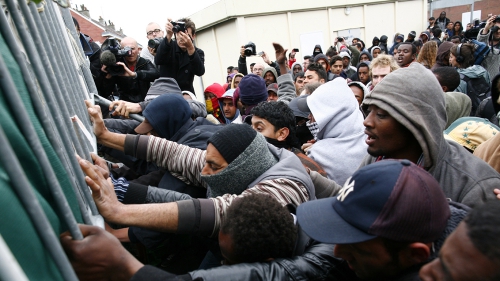
Vers le délitement de l’Etat au Proche- et Moyen-Orient
Cela m’amène à l’autre aspect que je décris par «délitement de l’Etat au Proche- et Moyen-Orient». Les Américains ont introduit par ailleurs la notion de «failed state» (Etat en déliquescence) – principalement toutefois pour justifier leurs propres interventions d’après le modèle suivant: on constate tout d’abord l’existence quelque part d’un «failed state», ce qui fait qu’on est bientôt tout simplement obligé d’intervenir. Cependant le fait est, comme l’histoire l’a montré dernièrement, que très souvent des Etats jusque-là relativement stables se transformaient en Etats en déliquescence, les soi-disant «failed states», suite aux actions et interventions militaires.
Réveil de l’Islam en réaction au monopole idéologique de l’Occident
Comme on l’a déjà expliqué, les différents systèmes nationaux n’ont plus, après la fin de la guerre froide, réussi à s’affirmer face à la pression politico-idéologique des Etats-Unis, soudain devenus l’unique puissance mondiale, en fait, la puissance hégémonique mondiale. En conséquence cela impliquait également une délégitimation des systèmes de chacun de ces Etats à l’égard de leur propre population. Une sorte de vide idéologique s’est alors mis en place – j’ai encore le vif souvenir d’entretiens, en particulier à Bagdad au début des années quatre-vingt-dix, avec des personnalités provenant de l’ensemble du monde arabe, et pas seulement d’Irak – qui a lui-même été comblé, de façon relativement rapide mais totale, par l’Islam. En Irak également, le président élu, jusqu’alors strictement laïc, s’est soudain découvert la fibre religieuse. (En ce qui concerne le réveil religieux et son importance politique, ce processus avait auparavant débuté en Iran – donc en milieu chiite. Un mouvement populaire, plus ou moins en opposition aux tentatives obsessionnelles du shah d’Iran de «changer totalement de cap» en engageant à fond son peuple dans le mode de vie et les valeurs occidentales, s’y était formé sur la base de l’Islam devenu facteur identitaire, ce qui a mené au renversement du régime de 1979.)
«La conséquence directe de telles interventions est, comme l’opinion mondiale a pu entre temps s’en apercevoir, la guerre civile et l’afflux de réfugiés. Dans tous les cas mentionnés, nous avons affaire à une détérioration de l’Etat planifiée et directement provoquée. L’instrument idéologique dont on s’est servi pour justifier ces interventions déstabilisantes, est celui de la prétendue ‹intervention humanitaire› ou – comme on l’a dit dans la dernière version parce que cela parait moins compromettant – de la prétendue ‹responsabilité de protéger› (‹responsibility to protect›).»
Destruction des Etats stables par les interventions militaires
Enfin, l’événement traumatisant scellant la fin du panarabisme a été l’invasion du Koweït par l’Irak à l’été 1990. Cela a signifié en conséquence l’élimination effective de l’Irak en tant qu’acteur régional, durant la guerre du Golfe de l’année suivante. Le processus de «neutralisation» politique et de marginalisation de l’Irak s’est alors poursuivi pendant plus d’une décennie en conséquence des sanctions économiques au niveau mondial imposées à l’Irak officiellement par les Nations Unies, mais en réalité par les Etats-Unis et leurs alliés. C’étaient, à ma connaissance, les mesures de contrainte les plus complètes et les plus meurtrières qui aient jamais été appliquées par l’organisation des Nations Unies – dont il est résulté un million de morts, sinon plus. Bien que je n’entre pas ici dans les détails, il faut le garder présent à l’esprit, si l’on veut comprendre ce qui se passe aujourd’hui en Irak et dans toute la zone alentour – tout comme en Syrie. Le fait est qu’historiquement ces sanctions étaient exceptionnelles, un crime commis envers tout un peuple au nom de la communauté internationale. En effet, après les événements pas encore complètement investigués survenus une décennie plus tard, le 11 septembre 2001, la volonté de puissance des Etats-Unis n’a plus connu de frein et a peu à peu porté le coup mortel à l’ordre ancien établi dans la région. Que ce soit en bien ou en mal – en fonction de votre manière de voir – les guerres d’agression camouflées au nom du droit international ou de l’humanitaire, avec ou sans l’aval des Nations Unies – en Afghanistan, en Irak, en Libye, et au jour d’aujourd’hui aussi en Syrie – ont non seulement détruit efficacement l’ordre politique dans les pays concernés et créé les soi-disant «Etats faillis», mais aussi déclenché une réaction en chaîne, en fin (provisoire) de laquelle on trouve l’immigration massive incontrôlée en Europe. J’en arrive maintenant au sujet principal de l’intervention d’aujourd’hui.
Aspects du délitement de l’Etat dans la région
Je voudrais distinguer ici deux aspects des effets de ce délitement de l’Etat dans la région. D’une part donc, l’aspect numéro un: les gens fuient parce que l’Etat s’enfonce dans la guerre. C’est par exemple la situation en Irak, en Libye, mais aussi en Syrie et, ce qui a encore échappé à l’Occident, au Yémen (où – comme en Syrie – une guerre civile extrêmement violente fait rage, soutenue par l’étranger). Le deuxième aspect, à clairement distinguer du premier est: l’Etat qui s’enfonce dans le chaos devient la zone de concentration ou plutôt la base logistique de migrants issus d’une autre région en direction de l’Europe. L’exemple classique en est la Libye. Le pays est devenu de fait la zone de concentration et le point de communication logistique pour l’organisation d’une immigration massive en provenance des pays africains situés au sud du Sahara, ce qu’on appelle la «zone sub-saharienne». Nous avons ici affaire à un «Etat» qui n’existe plus en tant qu’unité souveraine efficace, où on trouve deux gouvernements, deux parlements et quantité de milices rivales et d’autorités régionales – sur un territoire immense qui s’appelait auparavant «la grande Jamahiriya socialiste arabo-libyenne».
Si l’on passe ces éléments en revue, on doit aussi être attentif au fait qu’il n’existe pas d’organisation panarabe efficace pouvant recréer l’ordre – et que, finalement, il n’y en a jamais eu. La Ligue des Etats arabes, s’étant réunie fin juillet en Mauritanie pour débattre de la situation, peut tout au plus émettre des déclarations qui ne l’engagent en rien en réalpolitique. Bien qu’en ayant le statut d’organisation régionale, elle a donc le devoir de stabiliser la situation, en exerçant seulement un rôle d’observateur passif. Le fait est que cette organisation a plutôt encouragé des guerres d’agression, par son action dans l’histoire récente, comme le montre l’exemple de l’Irak.
«Rétrospectivement, on peut dire aujourd’hui que les Etats-Unis cherchaient à profiter du moment propice, suite à l’effondrement de l’empire communiste, pour garantir leur position hégémonique une fois pour toutes – un objectif proclamé dans la doctrine de sécurité nationale par Bush junior une décennie plus tard comme la volonté des USA de ne plus jamais accepter une situation de parité stratégique avec un autre Etat. Cela reflète bien, comme on pourrait le dire dans une rétrospective historique mondiale, l’abus et l’illusion du pouvoir.»
«L’Union [européenne ] se révèle de plus en plus clairement être une formation dysfonctionnelle dont les fonctionnaires et les juristes mettent en œuvre des règlements contradictoires qu’ils exécutent selon le bon vouloir du politique. Ceci est valable tout autant pour la problématique migratoire, pour celle des réfugiés, que pour l’échec de la politique monétaire.»
2. Délitement de l’Etat et déstabilisation en Europe
J’en viens avec cela – dans la chronologie des événements – au délitement de l’Etat et à la déstabilisation politique et sociale en Europe. Ici non plus je ne tiens pas à présenter en détail des faits largement connus. Il s’agit pour moi avant tout d’une analyse politique, juridique et sociale de la problématique à laquelle nous sommes confrontés en Europe.
L’UE se révèle être une construction politique défectueuse
En ce qui concerne l’aspect politique, il faut malheureusement se rendre compte du fait que l’Union européenne s’est révélée être une construction totalement défectueuse. Je constate ici un délitement de l’Etat dans le domaine international. Dans la gestion de la «crise des réfugiés» (je reviendrai plus précisément sur cette terminologie), l’Union européenne s’est révélée être un Moloch prétendant être un Etat, mais embrouillé dans un ensemble de règles contradictoires, et pour ainsi dire inefficaces, de compétences nationales et super-étatiques. L’Union se révèle de plus en plus clairement être une formation dysfonctionnelle dont les fonctionnaires et les juristes mettent en œuvre des règlements contradictoires qu’ils exécutent selon le bon vouloir du politique. Ceci est valable tout autant pour la problématique migratoire, pour celle des réfugiés, que pour l’échec de la politique monétaire.
Politique malhonnête et perte de confiance
En rapport avec la soi-disant politique des réfugiés, l’échec de l’Union apparaît concrètement dans le fait suivant: avant tout par une politique de porte grande ouverte, c’est-à-dire incluant la continuation du Traité de Schengen (libre circulation des personnes entre les Etats signataires du Traité de Schengen) et le refus total et simultané de protection des frontières extérieures. Malgré les diverses explications et promesses des politiciens et de la bureaucratie, au jour d’aujourd’hui rien n’en a été modifié. Il n’existe jusqu’à présent aucune protection efficace des frontières extérieures, et sans elle, le Traité de Schengen tout entier n’a plus aucun sens. On trompe les citoyens en réaffirmant par des envolées quasiment lyriques l’importance de la libre circulation des personnes et en déclarant sujet tabou l’exécution de contrôles aux frontières intérieures à l’espace Schengen, alors que les frontières extérieures ne sont pas sécurisées. Un pays comme la Hongrie qui, l’an passé déjà, a essayé d’observer fidèlement les dispositions en vigueur, a vu – comme nous-mêmes l’avons vu – ses efforts sabotés et a été dénigrée au niveau européen. Dans ces circonstances, il n’y a rien d’étonnant à ce que les citoyens perdent de plus en plus confiance dans des instances européennes agissant de façon aussi malhonnête.
Pour compléter, il faut toutefois ajouter que la République autrichienne, à l’initiative du plus jeune membre de gouvernement, le ministre des Affaires étrangères, s’est peu à peu appropriée le point de vue de la Hongrie et a réglé la politique de migration avec les pays des Balkans de l’Ouest et les Etats du Traité de Višegrad (Pologne, Slovaquie, Hongrie, République tchèque) ce qui a également signifié que la Macédoine a été soutenue et encouragée à exercer un contrôle efficace de sa frontière avec la Grèce.
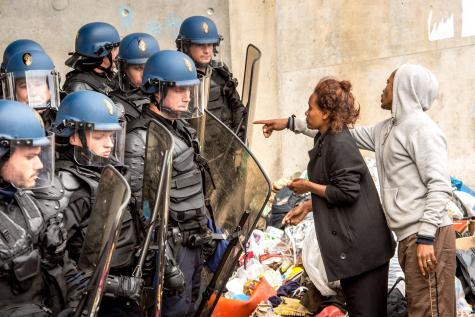
Le second point concernant l’échec de l’UE et le déficit de crédibilité du système européen est pour moi la manipulation malhonnête du Traité de Dublin – selon les conditions duquel, rien, mais alors vraiment rien du tout, n’est entrepris pour une protection commune des frontières extérieures. Par suite de cette continuelle négligence, ce décret est devenu depuis longtemps obsolète. La rétention, et un premier enregistrement des réfugiés dans un pays comme la Grèce – en grande difficulté financière – se sont révélées tout simplement illusoires.
Ce qui a apporté un certain soulagement sur ce front dans la situation actuelle (juillet 2016), n’est pas lié à une protection effective des frontières extérieures et à l’application du Traité de Dublin, mais uniquement à d’autres accords convenus ad hoc. Il s’agit là, d’une part de la coordination au sujet de la politique de migration auquel est parvenue la République d’Autriche avec les pays balkaniques de l’Ouest, d’autre part de la position de la Turquie qui – pour des raisons que je ne peux présenter ici en détail – est à présent tout à fait compétente et prête à exercer de meilleurs contrôles sur la sortie des gens stationnés sur son territoire national.
«Le critère essentiel de la reconnaissance d’un Etat en tant que membre souverain de la communauté internationale est et reste le contrôle de son propre territoire dans une perspective de long terme. C’est également la définition en droit international classique pour la reconnaissance d’une communauté en tant qu’Etat.»
Dissolution de la souveraineté suite au manque de contrôles aux frontières
Cela m’amène à un autre aspect du délitement de l’Etat et de la déstabilisation de l’Europe, notamment l’échec de la politique sociale. Sur le papier, donc aux termes de la loi, les Etats souverains, tous sans exception, n’ont démontré depuis le début de l’année ni la volonté, ni la capacité d’exercer réellement leur souveraineté. (Par rapport à l’Autriche, il y a, comme déjà mentionné, depuis le début de l’année un certain changement parce que maintenant le ministre des Affaires étrangères, de l’Intérieur et de la Défense coopèrent et osent soudainement parler ouvertement de sécuriser les frontières du pays. Jusqu’à il y a peu, on avait peur d’être catalogué de fasciste ou de raciste lorsqu’on voulait souligner l’importance de l’exercice de la souveraineté sur le territoire national). Le critère essentiel de la reconnaissance d’un Etat en tant que membre souverain de la communauté internationale est et reste le contrôle de son propre territoire dans une perspective de long terme.
C’est également la définition en droit international classique pour la reconnaissance d’une communauté en tant qu’Etat. La notion d’Etat implique l’existence d’une autorité contrôlant un territoire déterminé, clairement défini et exerçant ce contrôle non seulement du jour au lendemain ou jusqu’au jour prochain, mais dans une perspective de long terme. Se reposer sur une politique d’«ouverture des frontières» est à cet égard une illusion et en réalité, un stupide euphémisme. L’Etat, cela signifie toutefois une communauté capable d’entreprendre une délimitation entre son propre territoire et une autre zone. Cette condition, notamment, le contrôle efficace du territoire, n’a actuellement plus cours dans de nombreux Etats d’Europe.
Concernant l’Autriche, il y a eu, tout au moins de la part des ministres de la Défense et des Affaires étrangères, l’aveu qu’on devait entreprendre quelque chose. Cependant, s’il se produit un afflux migratoire à la frontière sud, le pays n’aura alors pas les ressources pour protéger sa frontière de manière efficace. Le fait est qu’au cours de l’année dernière – jusqu’au vote avec les pays des Balkans – les migrants pouvaient entrer dans le pays comme ils le désiraient tout en empêchant leur identification par les autorités – et donc par là, leur enregistrement réglementaire. Ceux qui pénétraient illégalement en Autriche pouvaient décider d’eux-mêmes – cela leur a été noblement accordé –, s’ils restaient ou s’ils voulaient continuer leur voyage. Le pouvoir exécutif et l’armée se limitaient au rôle d’observateurs impuissants, et à l’aide humanitaire.
Délégitimation de l’Etat à l’intérieur et à l’extérieur des frontières
Je voudrais encore insister sur deux autres aspects d’un point de vue juridique et politique, c’est-à-dire, sur la délégitimation et la déstabilisation.
Premièrement: Nous avons affaire ici à une double délégitimation de la chose publique – à l’intérieur et à l’extérieur de l’Etat. En ce qui concerne la délégitimation à l’extérieur du pays, on la constate dans l’abandon effectif de la souveraineté.
Un Etat qui renonce à l’exercice de sa souveraineté dans un domaine essentiel n’est pas pris au sérieux par la communauté internationale et perd son statut de partenaire digne de confiance.
En ce qui concerne la délégitimation de l’Etat à l’intérieur du pays, la meilleure manière de l’illustrer est de poser la question suivante: pourquoi le citoyen justiciable doit-il s’incliner devant la violence exercée par l’Etat dans lequel il vit, si cet Etat contrevient aux lois cent fois par jour selon son bon plaisir, visiblement politique, et nie en conséquence simultanément le droit fondamental de ses citoyens à la sécurité? L’Etat et ses institutions démontrent ainsi un parfait mépris vis-à-vis de leur responsabilité à l’égard des citoyens soumis au système judiciaire.
«En ce qui concerne la délégitimation de l’Etat à l’intérieur du pays, la meilleure manière de l’illustrer est de poser la question suivante: pourquoi le citoyen justiciable doit-il s’incliner devant la violence exercée par l’Etat dans lequel il vit, si cet Etat contrevient aux lois cent fois par jour selon son bon plaisir, visiblement politique, et nie en conséquence simultanément le droit fondamental de ses citoyens à la sécurité? L’Etat et ses institutions démontrent ainsi un parfait mépris vis-à-vis de leur responsabilité à l’égard des citoyens soumis au système judiciaire.»
Le système «deux poids, deux mesures» détruit les fondements de l’ordre juridique
Enfin, ces processus mènent – et c’est l’autre aspect mentionné plus haut – à la déstabilisation de l’ordre national, et ceci à divers égards. Je voudrais le décrire tout à fait brièvement.
Premièrement: en appliquant le système «deux poids, deux mesures», l’Etat supprime peu à peu les fondements du système judiciaire. Si dans un cas, des milliers de gens passent la frontière et entrent sans problème, mais que dans l’autre cas, le citoyen lambda tout à fait respectable atterrissant par exemple dans un aéroport, est, lui, minutieusement contrôlé, cela signifie que des normes différentes sont appliquées à chaque fois au passage des frontières. On voit un autre exemple de cette duplicité lorsque l’Etat, tout en punissant les passeurs à titre individuel, agit lui-même en tant que passeur à grande échelle. Je n’ai pas besoin de spécifier les détails concernant le transfert de migrants illégaux, par exemple de la frontière sud de l’Autriche à la frontière allemande.
Délabrement de la société civile
Deuxième aspect de la déstabilisation: la présence d’un nombre croissant de migrants issus de cultures totalement diverses et dont la notion de société et d’Etat est complètement différente amène non seulement des tensions sociales et des conflits, mais encore entraine une désintégration de la société civile, pourtant elle-même indispensable à la démocratie – avec tous les problèmes pour la sécurité intérieure qui résultent de la perte du contrôle de l’immigration. C’est ce que je désignerais, indiscutablement, comme la perte du consensus social.
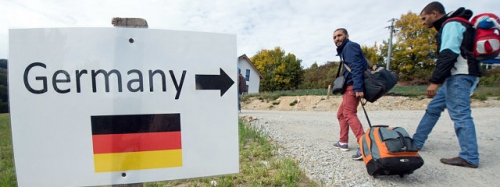
Déclin du consensus au niveau interétatique
Le troisième aspect de la déstabilisation se situe au niveau européen, donc interétatique. Ici nous avons également affaire à un déclin du consensus, dans ce cas entre les Etats-membres. Celui-ci se montre dans la divergence totale entre les positions des «nouveaux» et des «anciens» Etats-membres sur la question des migrations – un processus qui peut aller jusqu’à l’échec complet de la construction super-étatique de l’Union européenne.
Il s’agit là plus ou moins d’une discussion «tous contre tous» et il n’est pas étonnant que de plus en plus d’Etats reviennent aux solutions nationales ou plutôt adoptent des conventions en dehors du cadre de l’UE selon leurs intérêts spécifiques. On en a vu un exemple dans les accords conclus lors de la Conférence de Vienne entre l’Autriche et les pays balkaniques de l’Ouest ou plutôt les Etats de Višegrad – pour ainsi dire sans l’aval de Bruxelles ou de Berlin.
Le fait est qu’on revient peu à peu au contexte national parce qu’on s’aperçoit que c’est là que se trouve la seule solution effective aux problèmes concrets touchant directement à l’intérêt national, même s’il est possible – après des décennies d’érosion de l’autorité de l’Etat – que cela se produise en quelque sorte à un niveau inférieur, en partie parce que les Etats eux-mêmes n’ont plus les ressources nécessaires à la défense de leurs frontières.
Fragilité de l’Etat sur la base de concepts juridiques inexacts – quelques mises au point conceptuelles
Cela m’amène aux implications juridiques de la déstabilisation. Il me semble que dans le débat actuel, les concepts sont devenus complètement imprécis sur le plan juridique, ce qui est une raison essentielle pour la surcharge effective des structures de l’Etat et la fragilité croissante de l’Etat. Il faudrait développer en urgence une mise au point conceptuelle sur le plan politique.
Convention de Genève sur les réfugiés
Premièrement: la Convention de Genève de 1951 concernant les réfugiés et qui est juridiquement contraignante pour tous les Etats de l’UE ne traite absolument pas des réfugiés de guerre. Cette situation n’est absolument pas communiquée aux populations. Selon cette convention, la guerre n’est en aucun cas un motif justifiant l’asile. Selon son article 2, les réfugiés sont définis comme des individus craignant d’être persécutés pour des motifs raciaux, religieux, nationaux, idéologiques ou à cause de leur appartenance sociale à des groupes définis, et qui, à cause de ces persécutions, se retrouvent en exil et sont dans l’incapacité, ou ne sont pas disposés, à demander leur protection par leur propre pays.
Cela signifie que lorsque la guerre éclate dans un pays, sa population n’obtient pas automatiquement le droit d’asile, ou plutôt le droit de déposer une demande d’asile. On différencie le citoyen persécuté, comme décrit plus haut, de celui dont le pays est impliqué dans une guerre – si cette guerre est menée entre Etats, c’est-à-dire qu’un pays est attaqué en tant que tel sans que ce soit pour une raison de religion, d’appartenance nationale ou encore d’idéologie. En outre, la situation de discrimination ou de persécution, telle que la conçoit la Convention, n’est pas clairement décrite. Les cas de discrimination et de persécution recensés dans la Convention pourraient concerner de nombreuses personnes impliquées dans des guerres civiles, ils ne correspondent pas nécessairement à une situation de guerre subie par un pays victime d’une agression extérieure.
Deuxièmement, il faut maintenir le statut juridique qui, en vertu de l’article 31 de la Convention de Genève, veut que les réfugiés ainsi définis, parvenus illégalement sur le territoire d’un pays, n’obtiennent l’immunité par rapport à cette entrée illégale que s’ils proviennent (1) directement d’une zone dans laquelle leur vie et leur liberté sont compromises selon l’article 2 cité plus haut, et (2) s’ils s’inscrivent dès leur entrée illégale auprès des services publics du pays en question, c’est-à-dire, qu’ils se laissent enregistrer.
C’est le texte de la Convention. Cela signifie toutefois qu’en fait tous ceux arrivant dans les pays de l’Union européenne par voie maritime ou terrestre ne jouissent d’aucune immunité, et ne peuvent donc revendiquer le droit de solliciter l’asile, puisque ils proviennent déjà de pays dans lesquels ils n’étaient pas poursuivis. Cela signifie légalement qu’aucun pays de l’UE n’a, selon la Convention, l’obligation de laisser entrer les gens – en lieu de quoi, bien sûr, une organisation internationale comme l’UE ou un Etat souverain sont libres d’opter pour une autre solution plus généreuse. Un pays peut déclarer, comme bon lui semble, que tous les réfugiés provenant de tous les pays du monde sont bienvenus en tout temps et qu’il n’y a aucune «limite supérieure». Il doit cependant supporter lui-même les conséquences de cette politique et ne peut en imputer la charge à d’autres Etats. En réalité, chaque pays a également le droit de prendre des mesures contre l’entrée irrégulière des étrangers. Inversement, il existe bien sûr aussi le droit pour chaque Etat d’expulser ces gens. Cela ressort aussi, à l’inverse, dans la formulation de l’article 32, paragraphe 1, de la Convention de Genève sur les réfugiés.
La guerre froide comme arrière-plan historique de la Convention
Pour comprendre, juste une très brève indication sur le contexte historique: la Convention s’appliquait primitivement à des personnes qui, avant une date butoir bien précise – le 1er janvier 1951 – étaient devenus des réfugiés. Avec le protocole d’accord de 1966, cette restriction temporelle a été levée. A ce propos, un fait particulier – généralement passé sous silence – présente dans ces circonstances un intérêt certain: en fait, un Etat peut, selon ce protocole, en limiter la portée territoriale, sur simple déclaration, lors de son adhésion à la Convention. La Turquie, par exemple, a fait usage de cette disposition. Dans la situation actuelle, on atteint tout simplement le comble de l’ironie justement dans le cas de ce pays dont la coopération est si importante dans la question des réfugiés. En raison de la clause formulée selon le statut juridique de la Convention de Genève sur les réfugiés, la Turquie est en droit d’accepter uniquement des réfugiés en provenance d’Europe mais pas du Moyen-Orient ou d’Asie. Par ailleurs, la Turquie a également formulé une autre réserve, selon laquelle on ne peut attribuer à toute personne acceptée dans le pays en tant que réfugié des avantages pécuniaires plus importants que l’assistance sociale ou les aides versées aux citoyens du pays lui-même.
Sur le plan historique, il est aussi intéressant que la Convention – ainsi qu’elle a été fixée à la date butoir du 1er janvier 1951 – ne concernait avant tout que les réfugiés qui fuyaient vers l’Ouest les persécutions dans les pays communistes suite aux bouleversements politiques en Europe après la Seconde Guerre mondiale. A l’époque (pendant la guerre froide), le soutien aux réfugiés politiques était une cause tout à fait essentielle pour la création de la Convention.
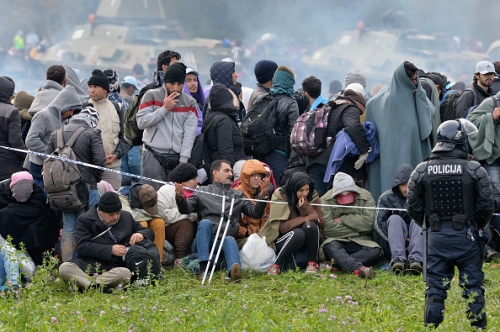
Par ailleurs, il existait déjà, depuis les années vingt et l’après-Première Guerre mondiale, une pré-convention qui concernait surtout les réfugiés en provenance de Russie et d’Arménie, puis, (dans les années trente, après l’arrivée au pouvoir des nationaux-socialistes) ceux qui venaient d’Allemagne. C’est donc seulement à partir des années soixante qu’on a élargi la protection des réfugiés. Cependant, et quelle qu’en soit la configuration historique concrète, le fait est que, au regard de la situation juridique d’après la Convention en vigueur, un réfugié perd sa qualité de réfugié à partir du moment où il quitte volontairement un pays-tiers sûr et doit alors être considéré comme migrant. En Europe, dans la configuration actuelle, les personnes considérées comme des «réfugiés» selon la Convention de Genève, sont, dans le plus grand nombre des cas, des migrants économiques. (Le terme de «réfugié économique» est juste une expression trompeuse.) Les migrants économiques sont des gens passant d’un pays à l’autre à la recherche de meilleures conditions de vie.
En général, on dissimule également aux citoyens le troisième aspect, concernant le plan juridique: les Etats signataires de la Convention de Genève sur les réfugiés peuvent dénoncer cette même Convention en tout temps selon l’article 44, paragraphe 1. La résiliation entre en vigueur un an après la date de réception de la lettre de résiliation par le secrétaire général de l’ONU. Le droit d’asile n’est donc pas un principe pour ainsi dire éternel ou immuable du droit international, ni une norme mentionnée en théorie juridique comme Jus cogens (norme impérative de droit international). En conséquence de quoi, il faut aussi préciser que dans un cadre légal, la Déclaration universelle des Droits de l’homme de 1948 n’est pas juridiquement contraignante pour ce qui touche aux réfugiés et au droit sur l’asile. L’article 14, paragraphe 1 de la Déclaration établit seulement de manière générale le droit de chaque individu à l’asile: «En cas de persécution, tout individu a le droit de rechercher et de profiter de l’asile dans d’autres pays.»
La concrétisation de ce principe n’est pas spécifiée. Comme le précise déjà son titre – «Déclaration» – il ne s’agit pas ici d’un contrat aux normes impératives, mais d’un document par lequel les Etats proclament ce qui est important à eux. Il s’agit ici finalement bien plus d’un principe moral ou d’une ligne de conduite, pour ainsi dire d’une anticipation de la communauté internationale qui avait adopté la Convention à l’époque. Il est quand même intéressant de noter que dans les deux alliances globales (décidées en 1966 et entrées en vigueur en 1976) par lesquelles la Déclaration des Droits de l’homme a été en quelque sorte rendue opérationnelle et juridiquement obligatoire – d’une part concernant les droits civils et politiques et d’autre part les droits économiques, sociaux et culturels – on ne trouve aucune définition du statut de réfugié ni de celui d’asile.
«Evidemment, il existe l’espoir d’un renversement de tendances géopolitiques mais seulement si à moyen terme se forme au plan global un nouvel équilibre de pouvoir – multipolaire en l’occurrence – représentant une alternative viable à l’actuelle configuration de pouvoir hégémonique.»
3. Questions géopolitiques
Cela m’amène au final à poser, sur le sujet d’aujourd’hui, la question géopolitique suivante: avons-nous affaire, avec l’afflux des réfugiés, ou plus exactement, avec l’afflux migratoire en Europe, à une déstabilisation opérée au nom d’un «nouvel ordre mondial»?
En raison de l’aggravation de la situation au cours des derniers mois, on ne peut esquiver cette question. On ne doit pas non plus se laisser intimider par tous ceux qui parlent immédiatement de «théories du complot», etc. Le fait est que chaque tribunal rendant un jugement dans le cadre d’une procédure pénale doit développer ex definitione une théorie du complot, dès lors qu’il s’agit de plus d’un seul responsable. En tant que citoyen à part entière et qui se fait son opinion par lui-même, il n’est pas possible de céder sur quoi que ce soit.
«Nouvel ordre mondial et théories du complot»
En ce qui concerne la notion de «nouvel ordre mondial», j’ai déjà essayé au début des années quatre-vingt-dix d’analyser l’idéologie la soutenant. Juste avant la seconde guerre du Golfe (après l’occupation du Koweït par l’Irak), le président Bush (père) dans son «Discours sur l’Etat de l’Union» du 16 janvier 1991 avait exposé le début d’un soi-disant «nouvel ordre mondial» («New World Order»). Il a annoncé, à la lettre, dans cette déclaration que «l’Etat de droit, et non pas la loi de la jungle» devrait s’appliquer immédiatement au gouvernement des Etats. Cela serait la nature même du «nouvel ordre mondial».
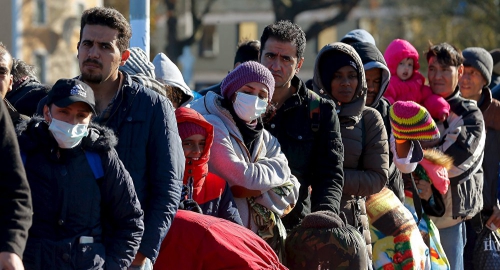
Rétrospectivement, on peut dire aujourd’hui que les Etats-Unis cherchaient à profiter du moment propice, suite à l’effondrement de l’empire communiste, pour garantir leur position hégémonique une fois pour toutes – un objectif proclamé dans la doctrine de sécurité nationale par Bush junior une décennie plus tard comme la volonté des USA de ne plus jamais accepter une situation de parité stratégique avec un autre Etat. Cela reflète bien, comme on pourrait le dire dans une rétrospective historique mondiale, l’abus et l’illusion du pouvoir. L’évolution de la politique mondiale au cours des dernières deux décennies doit être considérée dans cette perspective. La pièce maîtresse de cette stratégie était le droit des Etats-Unis de remodeler tout le Moyen-Orient selon leurs propres intérêts, pour ainsi dire «nomine novi ordinis saeculorum» (au nom d’un nouvel ordre mondial). Ceci a ensuite été établi par le concept idéologique d’un soi-disant «New Middle East» avec les mots d’ordre de la démocratie et des droits de l’homme. Les faits que j’ai rapidement esquissés ici à propos de la crise des réfugiés – historiquement, politiquement, légalement – doivent être interprétés dans un contexte général géostratégique et historique; les coïncidences et l’ordre chronologique doivent être examinés avec soin. Je voudrais illustrer brièvement la signification de tout cela au moyen de cinq exemples.
Premièrement, je renvoie à la destruction du système politique par la force armée – en violation de la Charte des Nations Unies – en Afghanistan (2001), en Irak (2003), en Libye (2011) et en Syrie (un processus qui est en marche depuis 2011 et qui est en relation avec le soutien plus ou moins direct aux groupes islamiques armés dans ce pays). La conséquence directe de telles interventions est, comme l’opinion mondiale a pu entretemps s’en apercevoir, la guerre civile et l’afflux de réfugiés. Dans tous les cas mentionnés, nous avons affaire à un délitement de l’Etat planifiée et directement provoquée. L’instrument idéologique dont on s’est servi pour justifier ces interventions déstabilisantes, est celui de la prétendue «intervention humanitaire» ou – comme on l’a dit dans la dernière version parce que cela parait moins compromettant – de la prétendue «responsabilité de protéger» («responsibility to protect»).
Utilisation des «nouveaux medias sociaux» par les services de renseignements
Deuxièmement, on est ici renvoyé de façon exemplaire à la gestion des services secrets ou plutôt à l’utilisation des nouveaux médias sociaux («New Social Media») pendant le printemps arabe en 2011. Là aussi la conséquence en a été – voir également les événements en Egypte – le chaos sous forme de guerre civile. Le déclenchement de la révolte et de la guerre civile en Syrie a également été réalisé essentiellement à l’aide de ces techniques d’information. Pour être correct, il faut bien sûr préciser que ce n’est qu’un facteur parmi plusieurs.
L’«Etat islamique»
Le troisième exemple est l’apparition de l’«Etat islamique», sous la dénomination officielle daula al islamia fi al iraku wa al scham, donc l’Etat islamique en Irak et dans la région de l’Al-scham. (C’est la région historique qui comprend aussi la Palestine et le Liban.) Cet «Etat» réclame non seulement ces territoires, mais encore des régions appartenant à d’autres pays, comme par exemple l’Egypte, la Libye, le Mali, le Nigeria, les Philippines (la région de Mindanao), l’Afghanistan, et les Etats d’Asie centrale comme par exemple l’Ouzbékistan, etc.
Il ne faut pas non plus sous-estimer l’influence idéologique de l’Etat islamique en Europe – non seulement au vu du danger de l’infiltration dans l’afflux de réfugiés non-contrôlés, mais encore par la radicalisation et le recrutement des musulmans vivant en Europe pour la cause de l’Etat islamique. Je mets en garde sur le danger qu’il y a à sous-estimer le potentiel émotionnel du réveil de la tradition islamique, en particulier sur la jeunesse. Il est naïf et impardonnable de croire qu’on peut amener des gens, en leur faisant signer une liste de grands principes – comme le font ceux qui enregistrent l’accueil des réfugiés – à reconnaître un gouvernement laïc, c’est-à-dire neutre sur le plan religieux, et de pour ainsi dire rayer d’un trait de plume et mettre au rancart ce qui est pour eux primordial, leurs convictions religieuses. Pendant qu’on se présente en donneur de leçons devant les gens et qu’on joue les «stagiaires» pour quelques heures, quelques jours tout au plus, on s’achète une tranquillité mais en réalité on ne résout rien.
Le quatrième aspect que je voudrais encore mentionner porte sur les effets de ce que j’ai décrit dans les premiers trois aspects, en fait, le déclenchement d’une immigration massive vers l’Europe. Cela me semble être un doux euphémisme de parler – comme l’a fait précédemment la ministre autrichienne des Affaires intérieures – d’une «tempête sur la forteresse Europe». Il s’agit au contraire et pour le dire précisément, bien plus d’une tempête sur une zone frontalière extérieure laissée sans protection, – par principe ou par négligence. Ce n’est pas une «forteresse» qui est attaquée ici, mais une entité n’ayant évidemment plus du tout la volonté de se protéger et qui montre déjà plus ou moins les signes de la déliquescence.
Coïncidences ou programmations?
A ce propos, deux coïncidences attirent l’œil: d’une part la coïncidence temporelle – presque comme si l’on appuyait sur un bouton – entre la réduction drastique des moyens alloués aux camps de réfugiés dans les pays voisins de la Syrie (approximativement à l’été 2015) et la dilatation soudaine de l’afflux des réfugiés. (Je pense ici aux camps gérés par le HCR dans les pays voisins, en particulier la Jordanie. Là-dessus on a une quantité d’informations détaillées fournies par les fonctionnaires jordaniens.) Il faut également mentionner la coïncidence résidant en la situation insupportable pour la Macédoine, la Serbie, la Croatie, la Slovénie mais également pour l’Autriche et la Hongrie, engendrée par l’invitation de facto de la cheffe du gouvernement allemand. En outre, tout cela a fait directement suite, chronologiquement, à la réduction drastique des moyens alloués aux camps de réfugiés régis par l’ONU.
Conflits intérieurs
En ce qui concerne les conséquences à moyen et à long terme, un cinquième aspect est aussi à considérer. Il s’agit là d’une part d’un modèle de société multiculturelle devenu impraticable et dont la chancelière allemande a d’ailleurs constaté l’échec des années avant l’immigration de masse (en octobre 2010) dans un discours devant la «Junge Union» – une évolution qu’elle suscite à présent encore plus avec sa politique en renforçant massivement l’afflux de réfugiés en Europe par ses déclarations répétées. Une autre conséquence de cette immigration incontrôlée est que les conflits culturels-religieux sont importés en Europe. Le danger existe désormais de voir le «conflit des civilisations» (Le «Clash of civilizations» de Huntington) devenir une réalité locale. Une autre conséquence de cette évolution est la décomposition des sociétés autochtones européennes en camps idéologiquement irréconciliables. Nous sommes confrontés à une énorme polarisation politico-sociale, d’une intensité n’ayant plus été observée depuis les dernières décennies et se transformant entre temps en une réalité de politique intérieure dans de nombreux Etats membres de l’Union européenne. Comme conséquences de la manipulation que j’ai déjà décrite – ou de la non-manipulation – du caractère problématique des réfugiés par les instances européennes, il faut maintenant constater une délégitimation croissante et le délabrement progressif de l’Union européenne, constatable par chacun. Un signe tout à fait clair en est la récente décision de la population anglaise, découlant en grande partie de la politique des réfugiés, et dont devra répondre la Chancelière allemande.
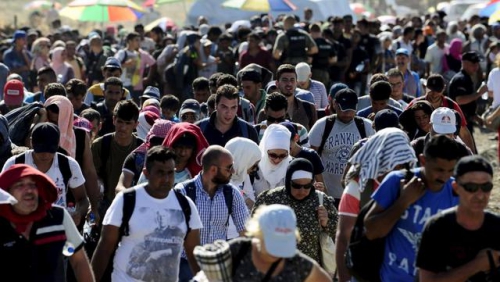
Réflexions finales
Menace de marginalisation politique et économique de l’Europe
Cela m’amène à mes réflexions finales. Tout cela se traduit en géopolitique de la façon suivante: premièrement, l’Europe va devenir un acteur mondial de plus en plus marginalisé. Deuxièmement, les protagonistes nationaux vont pour longtemps s’occuper d’abord d’eux-mêmes. On ne peut même plus balayer d’un simple revers de main le danger de désordres intérieurs et du déclenchement d’une guerre civile. Simultanément, cela renvoie à la menace de baisse de la capacité concurrentielle économique en raison des changements démographiques et de l’augmentation du manque de viabilité financière liée en cela à l’Etat social. Dans ce cas, l’affirmation des grands principes sous forme de mantra n’est d’aucune utilité, pas plus qu’il ne sert à rien de répéter cent fois aux gens qu’il n’existe, en matière de réfugiés «aucune limite supérieure de nombre»– ce qui est d’ailleurs parfaitement faux.
«Les Etats européens […] déstabilisés s’ils laissent les considérations humanitaires – par ailleurs dénuées de tout fondement juridique – prendre le dessus sur la raison d’Etat et générer une situation dans laquelle le Bonum commune Europaeum – le bien de tous les citoyens – et la paix continentale sont mis en jeu. Ils pourraient ainsi, cela est à craindre, provoquer leur propre chute au nom d’une humanité mal comprise, si des citoyens engagés et conscients des responsabilités, des partis, des mouvements politiques ne s’y opposent efficacement.»
Le mélange des aspects normatifs et effectifs détruit la crédibilité du principe lui-même
On doit distinguer, en effet, entre une limite supérieure dans le légal-normatif et une limite supérieure au sens effectif. Naturellement le droit d’asile est valable selon la Convention de 1951, aux conditions formulées dans cette convention, pour tous ceux qui remplissent ces conditions; ici on ne peut ni séparer, ni exclure. Cependant, il est de fait également clair que, par exemple, la République autrichienne ne peut recevoir chez elle – disons – deux ou trois milliards de personnes de la population mondiale.
Ou encore, pour formuler un autre exemple: celui qui voudrait de son propre chef aider les réfugiés parce qu’il le voit comme une obligation morale, doit aussi se dire que son dévouement – ainsi que le commandement de l’amour envers son prochain – est fondamentalement valable à l’égard de tous. Le même, cependant, doit également être assez honnête pour reconnaître qu’il ne pourrait, même s’il le voulait, accueillir dans son propre appartement des milliers de personnes, qui peut-être revendiqueraient tous son aide. Si l’on mélange le normatif et l’effectif, on détruit finalement la crédibilité du principe lui-même.
«Unintended consequences» ou conséquences volontaires?
L’identification des profiteurs de cette chaîne d’événements, comme je l’ai indiqué ici, peut éventuellement nous donner des indications, dans la mesure où il s’agit des célèbres, comme disent les Américains, «unintended consequences», donc de conséquences imprévues, ou plutôt de développements intentionnellement provoqués. Puisque ceux qui profitent d’un tel développement craignent naturellement de se retrouver au centre de l’attention générale, ils peuvent donc tout aussi facilement, comme je l’ai déjà expliqué plus haut, jouer de l’habituel argument massue de la théorie du complot. L’observateur critique des évènements, je l’espère, ne se laissera pas si facilement intimider.
Un équilibre des pouvoirs multipolaires comme alternative viable
Evidemment, il existe l’espoir d’un renversement de tendances géopolitiques mais seulement si à moyen terme se forme au plan global un nouvel équilibre de pouvoir – multipolaire en l’occurrence – représentant une alternative viable à l’actuelle configuration de pouvoir hégémonique. Toutefois, ainsi que je le crains, dans l’Etat où elle se trouve actuellement, l’Union européenne n’aura aucune part dans la formation de cette multipolarité. On ne peut se laisser aller à aucune illusion. La situation au Moyen-Orient ne se stabilisera pas avant des décennies. En ce qui concerne peut-être la confrontation des Chiites et des Sunnites, nous nous trouvons face à une situation similaire à celle de la guerre de Trente ans. Les interventions occidentales ont engendré, en ce qui concerne cette guerre de religion, une configuration absolument comparable à cette tragédie européenne du XVIIe siècle. Pour ce qui est du flux migratoire résultant des interventions militaires, je crains qu’il n’ait déjà atteint le «point de non retour». Les mesures prises dans la région pour défendre l’afflux des réfugiés sont à peine plus prometteuses. Bien qu’on ait toujours dit qu’il fallait combattre le problème à la racine, c’est-à-dire qu’il fallait – après avoir durablement détruit leur ordre politique – rétablir des Etats stables et viables, je ne vois donc pas comment on pourrait encore le réaliser de façon crédible – malgré tout le pouvoir et la puissance économique possédés par l’Occident – dans les décennies prochaines. Parce qu’aussi regrettable que cela puisse être, il est peut-être déjà trop tard pour s’attaquer aux causes et qu’il s’agit donc avant tout de prendre des mesures efficaces, et on parle là de mesures physiquement efficaces, pour la protection des frontières de l’Europe.
Protéger les frontières pour protéger la paix du continent
Les Européens, et je veux dire ici avant tout les politiciens européens, seraient bien avisés de ne pas importer les conflits dont j’ai traité ici et de pratiquer une politique de la raison au lieu d’une politique des sentiments (qui par moments menace de dégénérer en hystérie collective humanitaire) basée sur une analyse rationnelle des conséquences géopolitiques des développements. Le monde arabe a sombré dans le chaos – en toute hypocrisie au nom de la démocratie et des Droits de l’homme.
Les Etats européens qui sont maintenant directement concernés – d’une façon bien différente de celle du responsable, de l’autre côté de l’Atlantique – par les conséquences de cette évolution, vont eux-mêmes être déstabilisés s’ils laissent les considérations humanitaires – par ailleurs dénuées de tout fondement juridique – prendre le dessus sur la raison d’Etat et générer une situation dans laquelle le Bonum commune Europaeum – le bien de tous les citoyens – et la paix continentale sont mis en jeu. Ils pourraient ainsi, cela est à craindre, provoquer leur propre chute au nom d’une humanité mal comprise, si des citoyens engagés et conscients des responsabilités, des partis, des mouvements politiques ne s’y opposent efficacement. •
Hans Köchler
(Traduction Horizons et débats)
Hans Köchler a fait partie de 1990 à 2008 du comité directeur de l’Institut de philosophie de l’université d’Innsbruck. Aujourd’hui, il est président du groupe de travail autrichien pour la science et la politique, co-président de l’Académie internationale de philosophie et président de l’International Progress Organization qu’il a fondée en 1972. On ne peut ici rappeler que quelques-uns des points marquants de l’activité débordante de Hans Köchler: Les axes de recherche de Köchler sont, entre autres, la philosophie juridique, la philosophie politique et l’anthropologie philosophique, dans lesquelles ses résultats de recherche scientifique convergent sur de nombreux points avec les vues du cardinal polonais Karol Wojtyla, devenu plus tard le pape Jean Paul II. Hans Köchler s’est fait connaître dès le début des années soixante-dix par de nombreuses publications, des voyages, des rapports, et par sa participation au sein de diverses organisations internationales à un dialogue des cultures, en particulier le dialogue entre le monde occidental et le monde islamique. En 1987, le professeur Köchler a lancé, en collaboration avec le lauréat du prix Nobel Sean McBride l’«Appel des juristes contre la guerre nucléaire» et a en conséquence contribué à une expertise, selon laquelle la Cour de justice internationale a établi que l’éventuelle utilisation d’armes nucléaires était incompatible avec le droit international public. Hans Köchler a toujours pris position sur la question de la réforme des Nations Unies et a exigé leur démocratisation. Il a, en particulier, également pris position sur la question de la concrétisation du droit international, et s’est en cela opposé à une instrumentalisation politique des normes du droit international. Faisant partie des observateurs envoyés au procès de Lockerbie par Kofi Annan, alors secrétaire général des Nations Unies, il a rédigé un rapport critique, paru en 2003 sous le titre «Global Justice or Global Revenge? International Justice at the Crossroads». Son impression était que le procès de Lockerbie s’était déroulé sous influence politique, et il en retirait l’exigence d’une séparation des pouvoirs ainsi qu’une totale indépendance de la juridiction pénale internationale. Le texte que nous reproduisons ici reprend une intervention d’Hans Köchler à l’invitation de la «Coopérative Zeit-Fragen» le 25 juillet 2016 à Sirnach (CH).
Source: Zeit-fragen.ch/
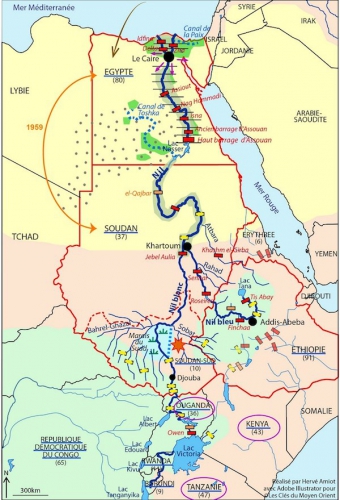 El Nilo para Egipto
El Nilo para Egipto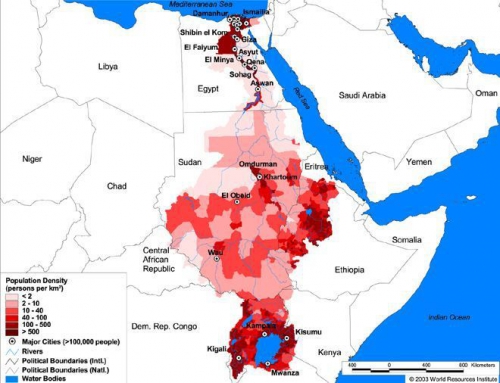
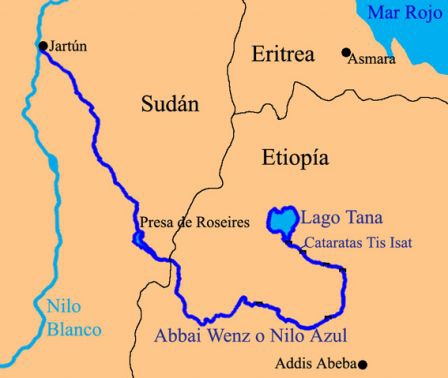 Con todo ello, Etiopía pasaría de ser un país donde tan sólo un tercio de la población tiene acceso a energía eléctrica a ser el mayor exportador de energía de África oriental. Al mismo tiempo, los problemas derivados de la sequía se verían enormemente reducidos y se experimentaría un notable estímulo del desarrollo económico. O desde luego así lo creen las autoridades etíopes, que consideran que un fracaso en la construcción de la presa constituiría un fracaso de Etiopía en su totalidad. Tal es la importancia de la GERD para ellos que han financiado las obras con recursos públicos propios.
Con todo ello, Etiopía pasaría de ser un país donde tan sólo un tercio de la población tiene acceso a energía eléctrica a ser el mayor exportador de energía de África oriental. Al mismo tiempo, los problemas derivados de la sequía se verían enormemente reducidos y se experimentaría un notable estímulo del desarrollo económico. O desde luego así lo creen las autoridades etíopes, que consideran que un fracaso en la construcción de la presa constituiría un fracaso de Etiopía en su totalidad. Tal es la importancia de la GERD para ellos que han financiado las obras con recursos públicos propios.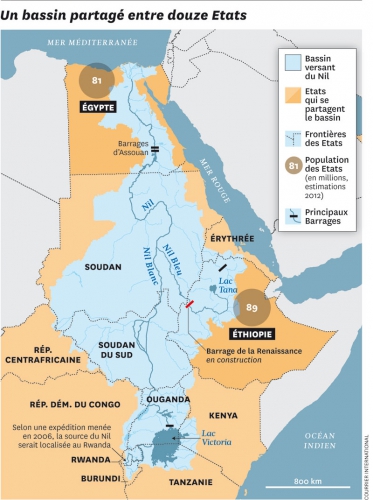 Así, la NBI ha logrado que el eje gravitacional de la región se haya desplazado al sur. Con ello Egipto, a pesar de sus esfuerzos de mantener el statu quo con su participación de la iniciativa, tendrá que cambiar su estrategia, y aceptar la necesidad de tejer alianzas con las naciones meridionales de la cuenca; será ésta la única vía por la que podrá capear su inminente crisis hídrica sin provocar una escalada de tensiones armadas en la región, a la vez que se beneficia del desarrollo económico de la zona.
Así, la NBI ha logrado que el eje gravitacional de la región se haya desplazado al sur. Con ello Egipto, a pesar de sus esfuerzos de mantener el statu quo con su participación de la iniciativa, tendrá que cambiar su estrategia, y aceptar la necesidad de tejer alianzas con las naciones meridionales de la cuenca; será ésta la única vía por la que podrá capear su inminente crisis hídrica sin provocar una escalada de tensiones armadas en la región, a la vez que se beneficia del desarrollo económico de la zona.




 En parallèle, les cerveaux quittent la France. Adieux diplômés et chercheurs remplacés par migrants et chômeurs exotiques! Tous ces cerveaux ne reviendront jamais. Ils constituent une perte irréparable, d'autant que leur nombre ne fait qu'augmenter. “Le flux net sortant annuel des personnes nées en France a doublé entre 2006 et 2011 pour s’établir à près de 120 000 personnes en 2011” lit-on dans
En parallèle, les cerveaux quittent la France. Adieux diplômés et chercheurs remplacés par migrants et chômeurs exotiques! Tous ces cerveaux ne reviendront jamais. Ils constituent une perte irréparable, d'autant que leur nombre ne fait qu'augmenter. “Le flux net sortant annuel des personnes nées en France a doublé entre 2006 et 2011 pour s’établir à près de 120 000 personnes en 2011” lit-on dans 

 del.icio.us
del.icio.us
 Digg
Digg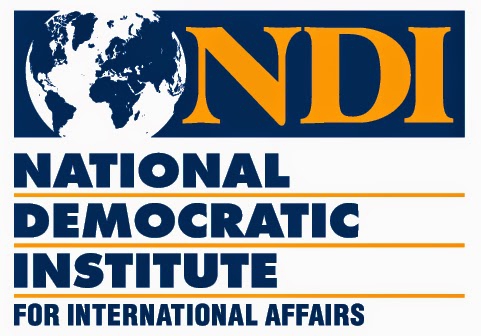 Las ONG “vinculadas al extranjero” por todo el mundo juegan un papel irremplazable en el fomento de las guerras híbridas. La ley de la guerra híbrida declara que este tipo de conflictos son conflictos identitarios fabricados, predicados para desbaratar, controlar, o influenciar los proyectos de infraestructura conectivos transnacionales y multipolares en países clave de tránsito por medio de la representación de: Alteración de régimen, Cambio de régimen, o Reinicio de Régimen (en adelante, ACR-R). Estas tres tácticas también podrían ser descritas como concesiones políticas, como transición de liderazgo “pacífica” o violenta, o como alteración del Estado fundamentalmente a través de medios tales como la descentralización presionada para conducir hacia una federación identitaria fácilmente manipulable.
Las ONG “vinculadas al extranjero” por todo el mundo juegan un papel irremplazable en el fomento de las guerras híbridas. La ley de la guerra híbrida declara que este tipo de conflictos son conflictos identitarios fabricados, predicados para desbaratar, controlar, o influenciar los proyectos de infraestructura conectivos transnacionales y multipolares en países clave de tránsito por medio de la representación de: Alteración de régimen, Cambio de régimen, o Reinicio de Régimen (en adelante, ACR-R). Estas tres tácticas también podrían ser descritas como concesiones políticas, como transición de liderazgo “pacífica” o violenta, o como alteración del Estado fundamentalmente a través de medios tales como la descentralización presionada para conducir hacia una federación identitaria fácilmente manipulable.
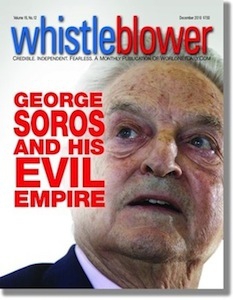 Cada una de estas tres diferentes fuentes proporciona financiación y entrenamiento para sus delegados (proxis) sobre el terreno, con el deseo de que tengan éxito en cultivar una comunidad de quinta y sexta columnistas para ayudar a sus objetivos. El entrenamiento organizacional y las técnicas organizativas son esenciales debido a la fuerza con que influyen en la efectividad del grupo, dado que a fin de cuentas, es habitual que los pequeños miembros del núcleo sean lo que verdaderamente cuenta, ya que sus cohortes y civiles afiliados, o bien son voluntarios, o bien son pequeños gastos temporales.
Cada una de estas tres diferentes fuentes proporciona financiación y entrenamiento para sus delegados (proxis) sobre el terreno, con el deseo de que tengan éxito en cultivar una comunidad de quinta y sexta columnistas para ayudar a sus objetivos. El entrenamiento organizacional y las técnicas organizativas son esenciales debido a la fuerza con que influyen en la efectividad del grupo, dado que a fin de cuentas, es habitual que los pequeños miembros del núcleo sean lo que verdaderamente cuenta, ya que sus cohortes y civiles afiliados, o bien son voluntarios, o bien son pequeños gastos temporales.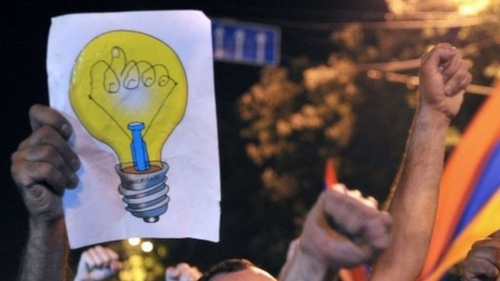
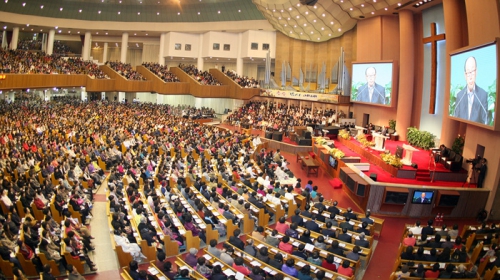

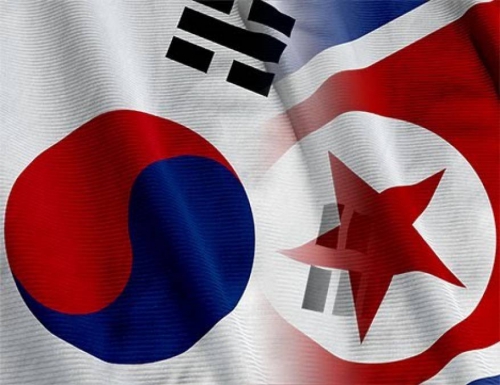
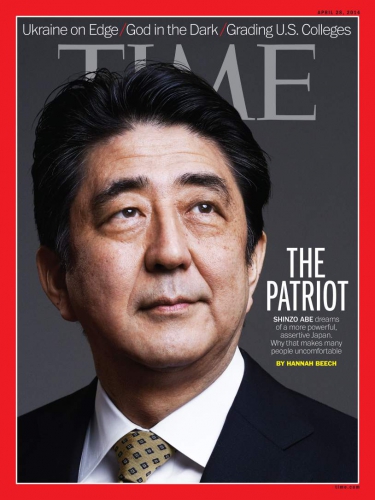
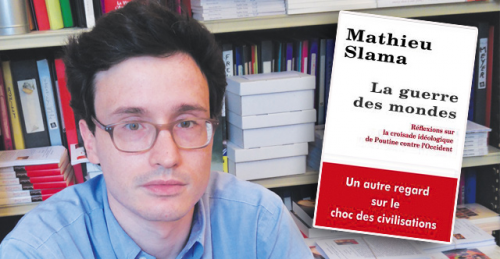
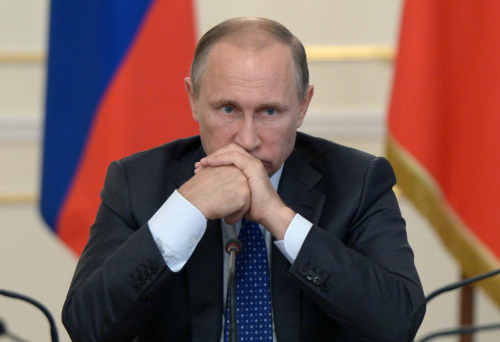
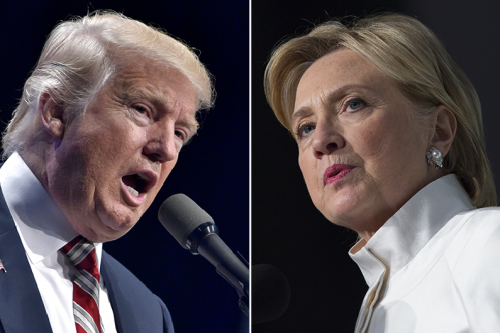
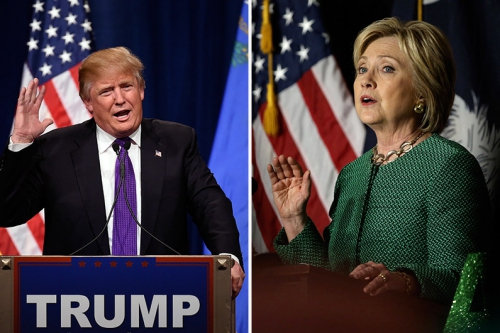
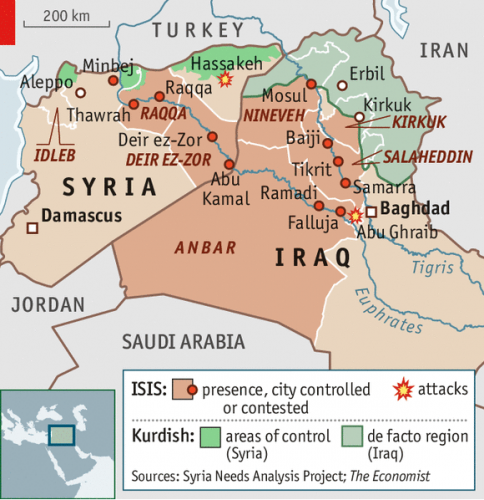
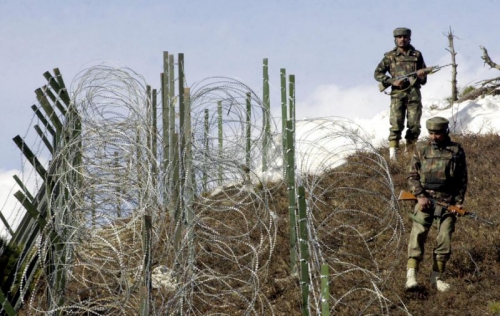
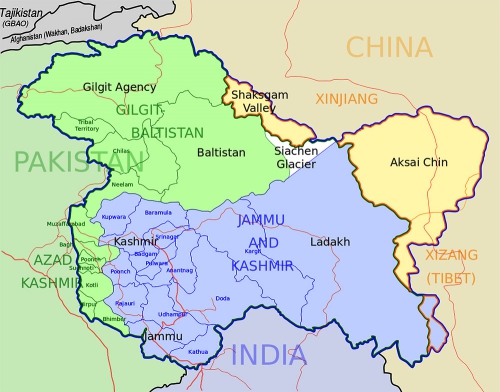
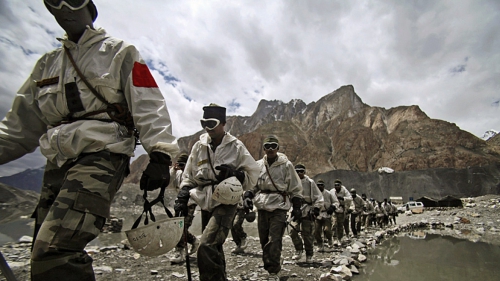
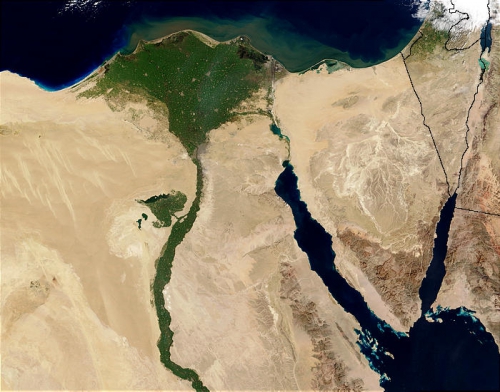

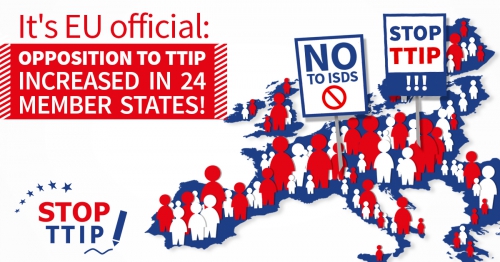
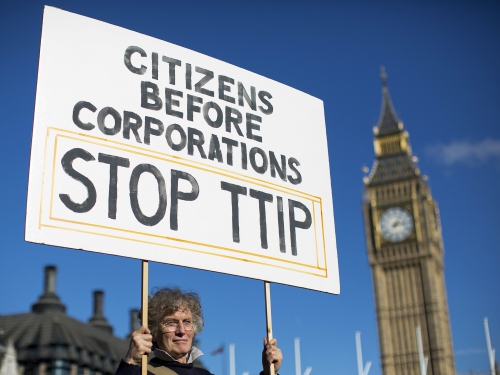
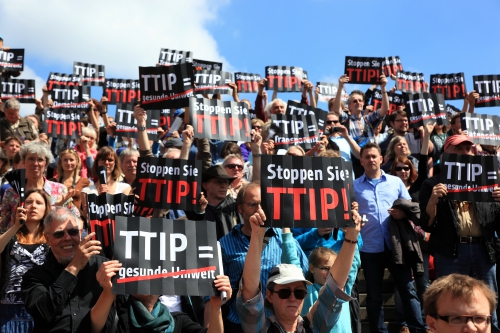
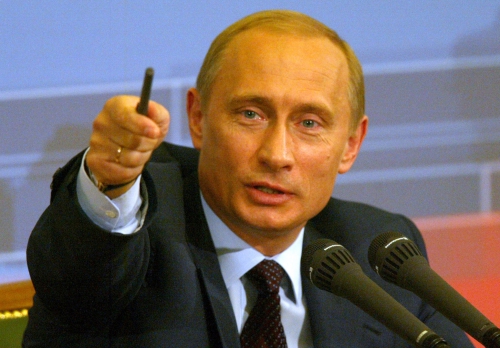
 Avec 54,2% des voix environ, le parti Russie Unie de Poutine et Medvedev s’impose largement, bien davantage que ce que prévoyaient les sondages, y compris ceux sortis des urnes, où le mouvement était plutôt annoncé aux alentours de 43% environ, alors qu’il est de dix points supérieurs au final. Cela alimentera toutes les spéculations, non sans raison, mais n’oublions pas qu’à l’époque d’Eltsine, les USA ne s’offusquaient pas de méthodes démocratiquement « particulières » lorsqu’il s’agissait de s’opposer aux communistes. Russie Unie obtient également 72% de la douma et 343 sièges, écrasant de tout son poids les trois formations politiques qui ont réussi à passer la barre fatidique nécessaire pour obtenir un groupe parlementaire.
Avec 54,2% des voix environ, le parti Russie Unie de Poutine et Medvedev s’impose largement, bien davantage que ce que prévoyaient les sondages, y compris ceux sortis des urnes, où le mouvement était plutôt annoncé aux alentours de 43% environ, alors qu’il est de dix points supérieurs au final. Cela alimentera toutes les spéculations, non sans raison, mais n’oublions pas qu’à l’époque d’Eltsine, les USA ne s’offusquaient pas de méthodes démocratiquement « particulières » lorsqu’il s’agissait de s’opposer aux communistes. Russie Unie obtient également 72% de la douma et 343 sièges, écrasant de tout son poids les trois formations politiques qui ont réussi à passer la barre fatidique nécessaire pour obtenir un groupe parlementaire.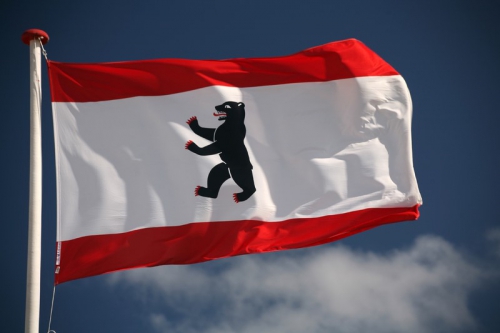
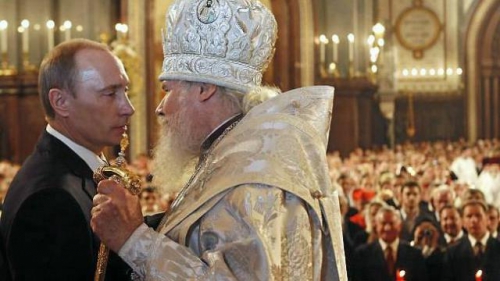
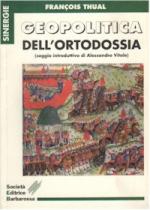 Il titolo di questo numero di “Eurasia” è stato palesemente suggerito da quello di un’omonima opera di François Thual1 che, prendendo in esame il caso esemplare del cristianesimo ortodosso, mostra come il fattore religioso, lungi dal ridursi a dato secondario o sovrastrutturale, possa fornire ad un soggetto politico un patrimonio di miti e di simboli, fino a costituire un motore determinante delle sue azioni e delle sue scelte. Certo, agli studiosi di geopolitica si offre la possibilità di sottoporre ad un’indagine analoga anche altre grandi religioni che, dopo aver occupato spazi diversi del continente eurasiatico, hanno fondato ciascuna una propria civiltà, ciascuna ispirando le dinamiche del proprio spazio rispettivo; e in effetti non mancano, nella letteratura di settore, gli studi concernenti le implicazioni geopolitiche delle varie forme religiose2.
Il titolo di questo numero di “Eurasia” è stato palesemente suggerito da quello di un’omonima opera di François Thual1 che, prendendo in esame il caso esemplare del cristianesimo ortodosso, mostra come il fattore religioso, lungi dal ridursi a dato secondario o sovrastrutturale, possa fornire ad un soggetto politico un patrimonio di miti e di simboli, fino a costituire un motore determinante delle sue azioni e delle sue scelte. Certo, agli studiosi di geopolitica si offre la possibilità di sottoporre ad un’indagine analoga anche altre grandi religioni che, dopo aver occupato spazi diversi del continente eurasiatico, hanno fondato ciascuna una propria civiltà, ciascuna ispirando le dinamiche del proprio spazio rispettivo; e in effetti non mancano, nella letteratura di settore, gli studi concernenti le implicazioni geopolitiche delle varie forme religiose2.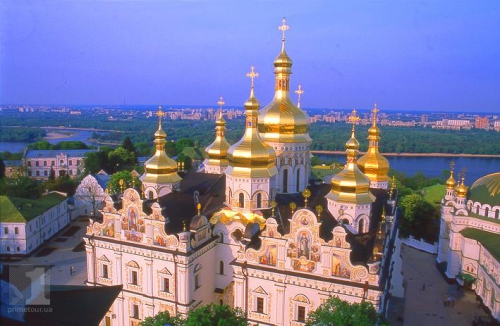
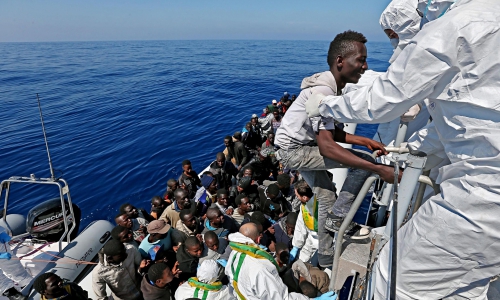






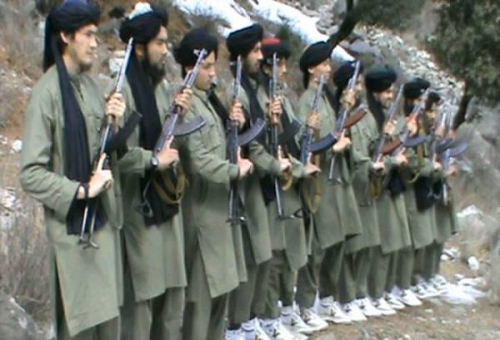


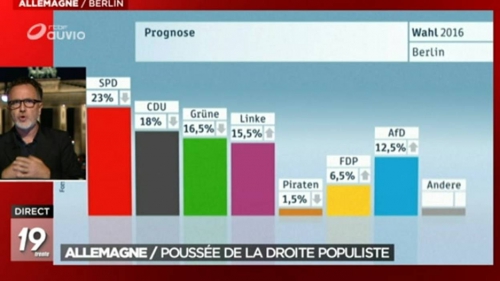
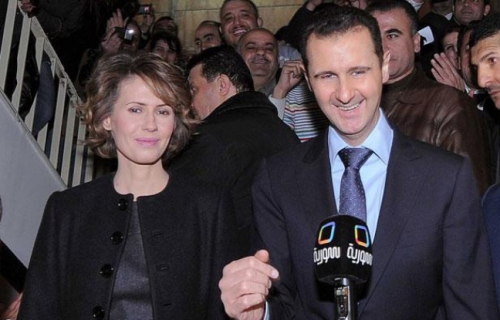






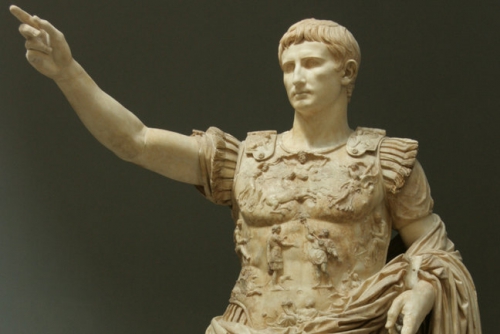

 And America’s appetite can no longer be quenched, enter Hillary Clinton and Donald Trump. Bred mediocrity is notion first called to my attention by my brother Tony Joyce, a self made engineer who worked his way to the top hurdling every obstacle a human can. Bred mediocrity is the natural laziness of a successful society, intersecting with a resentence of intellect. It is also a topic experts like
And America’s appetite can no longer be quenched, enter Hillary Clinton and Donald Trump. Bred mediocrity is notion first called to my attention by my brother Tony Joyce, a self made engineer who worked his way to the top hurdling every obstacle a human can. Bred mediocrity is the natural laziness of a successful society, intersecting with a resentence of intellect. It is also a topic experts like 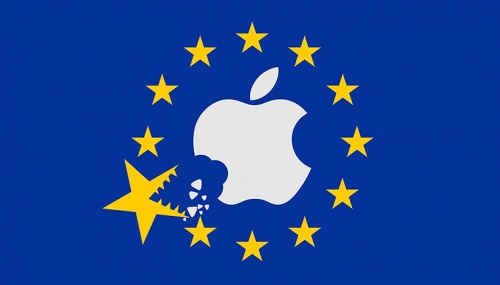
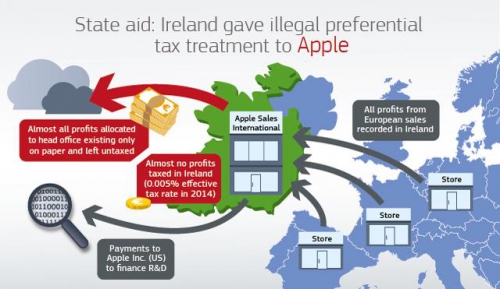

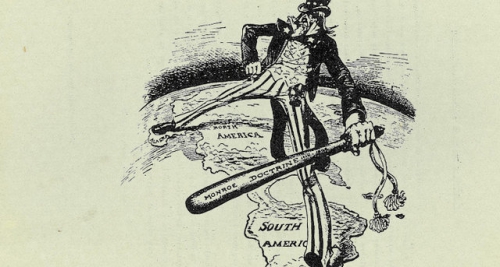
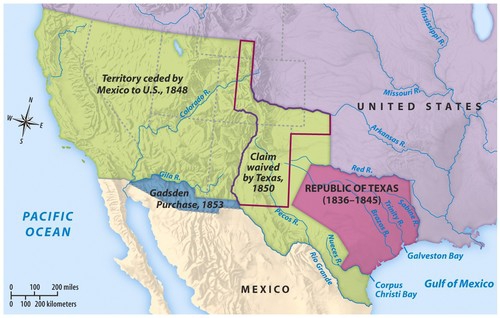
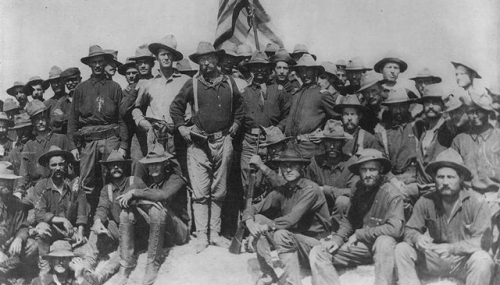
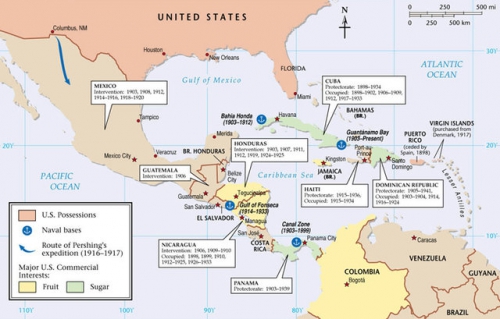
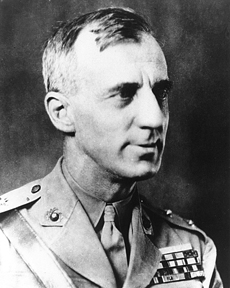 Le général Smedley Butler, auteur du livre "War is a Racket"
Le général Smedley Butler, auteur du livre "War is a Racket"